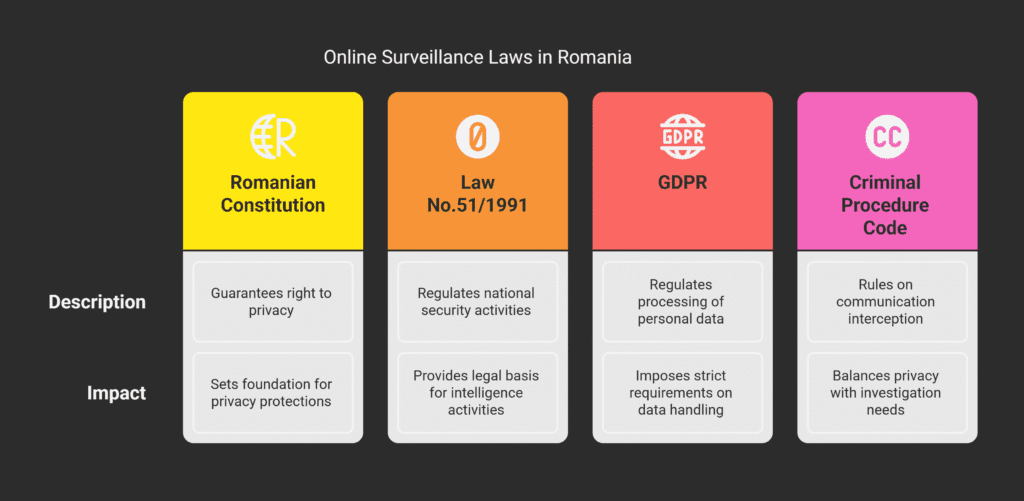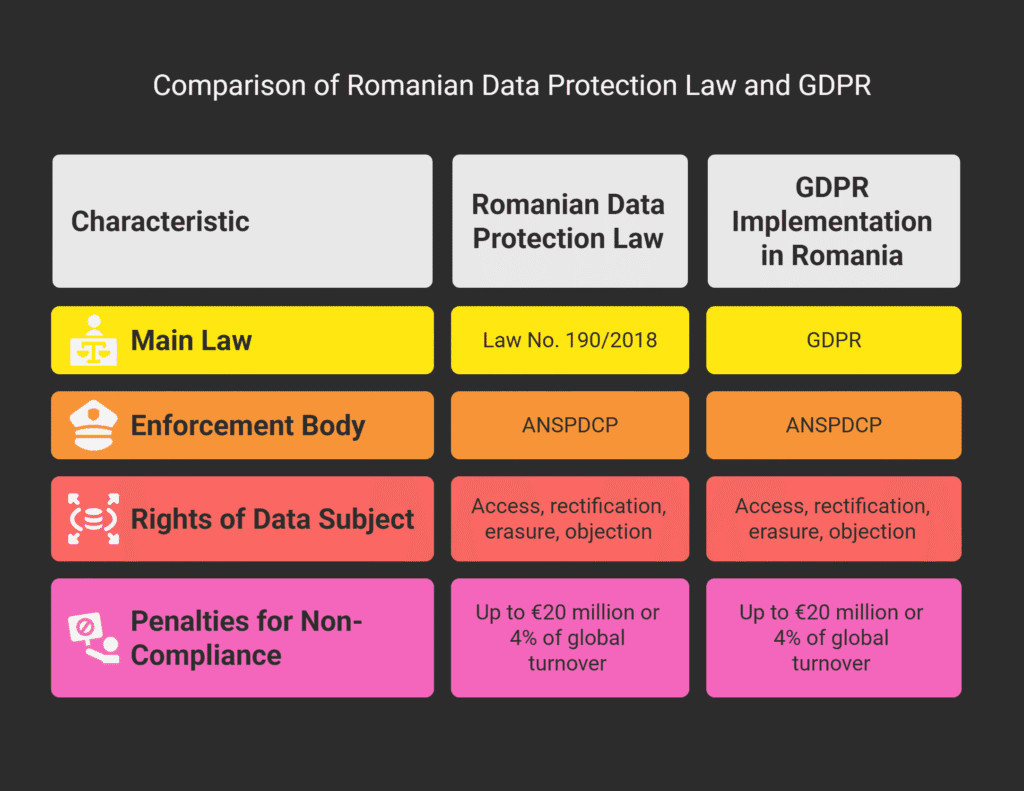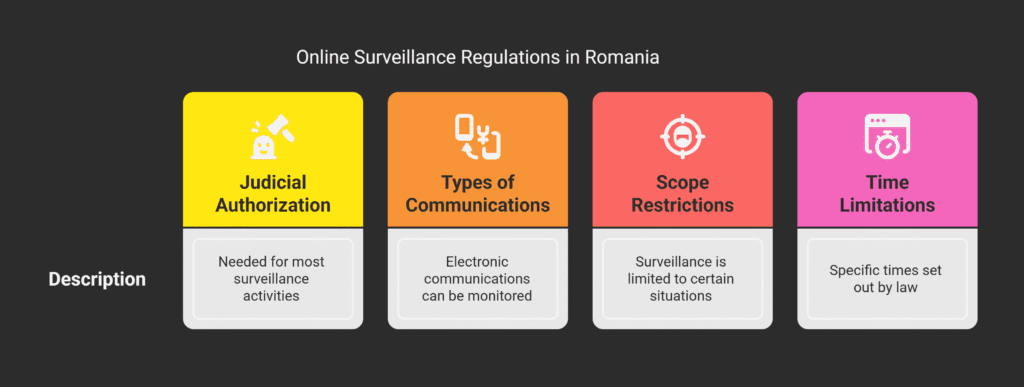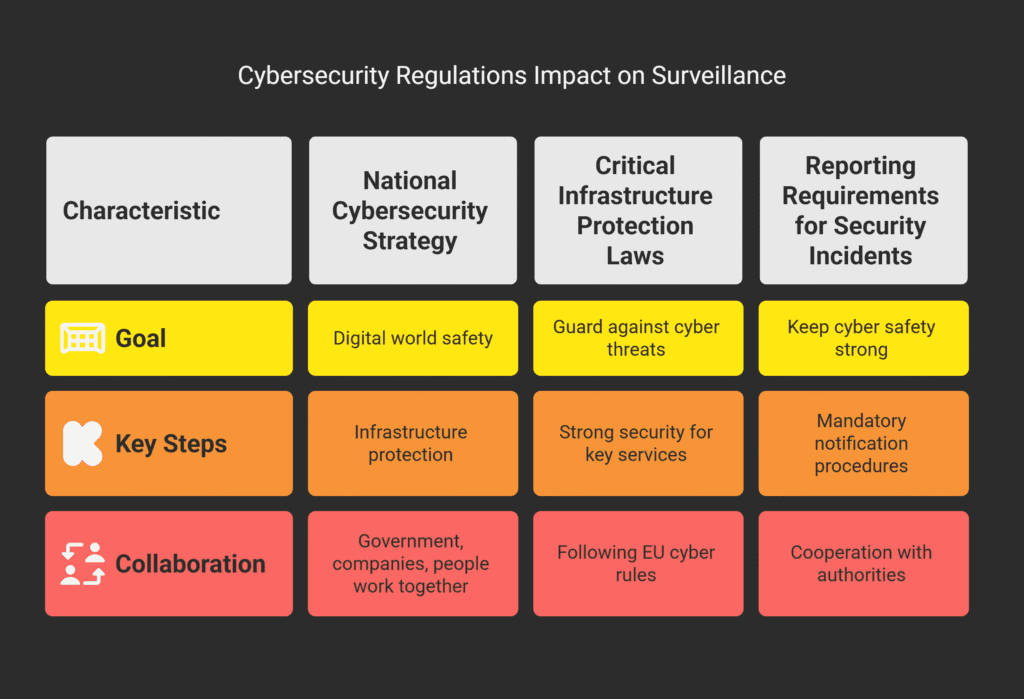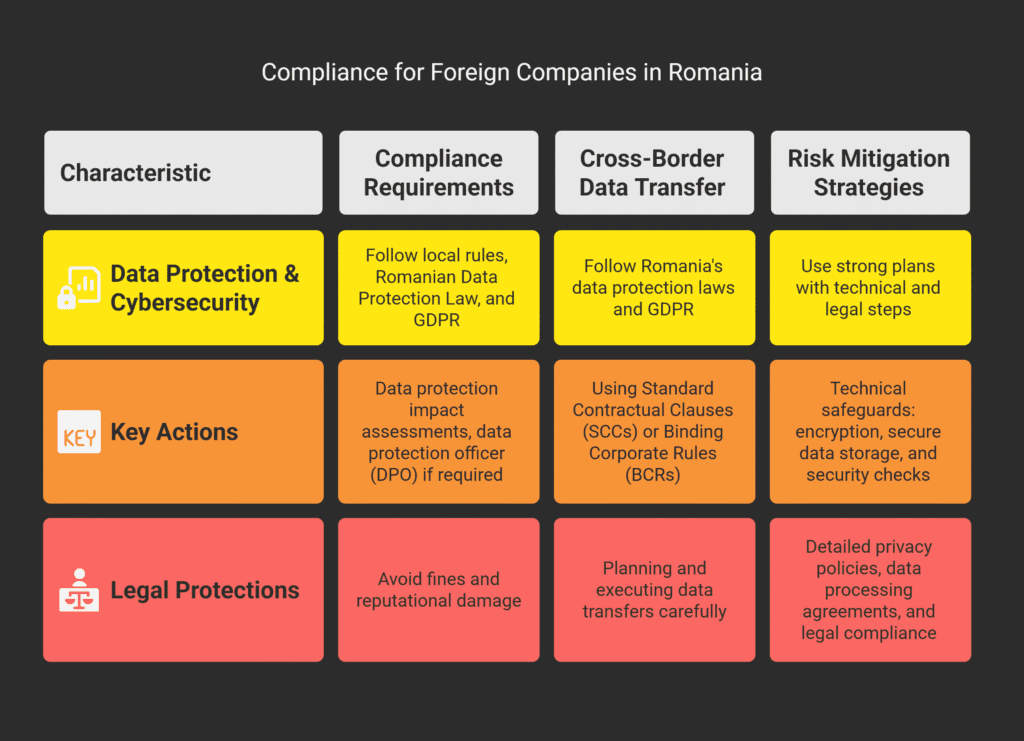Mapping Romania’s Legal Space: A Close-Up Examination of May 2025
🇷🇴 Romania’s Legal Landscape
Key Developments in May 2025
Impact Overview
Ongoing Challenges
Fiscal Reforms
Special pensions reform, public enterprise governance, and tax framework overhaul remain critical for EU funding compliance.
EU Pressure
Romania faces Excessive Deficit Procedure with suspended PNRR funds pending reform implementation.
Institutional Balance
Balancing transparency, privacy, and anti-corruption efforts while maintaining public trust.
Romania’s Legal Landscape in May 2025: Key Decisions and Reforms
Navigating the Currents of Change: A Pivotal Month for Romanian Law and Society
Romania, a nation steadily advancing amidst its unique constitutional principles and the broader European Union legal order, experienced a remarkably dynamic May 2025.
This period was defined by significant rulings from the country’s highest court and crucial legislative shifts that touch upon the core principles of transparency, judicial efficiency, and Romania’s ongoing alignment with European standards.
For citizens, businesses, and legal professionals alike, understanding these developments is not merely an academic exercise but a practical necessity for navigating the contemporary Romanian legal landscape.
This report delves into the five most impactful legal events of May 2025, examining their origins, immediate consequences, and potential long-term repercussions.
From constitutional debates on public officials’ wealth declarations to strategic judicial reforms aimed at reducing court backlogs, and from European Commission interventions on professional recognition to the final validation of presidential election results, May underscored Romania’s continuous journey towards legal refinement and institutional strengthening.
We will also touch upon the persistent efforts in fiscal and economic reforms, essential for the nation’s financial health and its commitments to the European Union.
1. The Constitutional Court and the Shroud of Transparency: Rethinking Public Disclosure of Wealth Statements
Transparency forms the bedrock of any robust democratic institution, particularly concerning the financial integrity of public officials.
Romania has long grappled with a legacy of corruption, a struggle marked by intermittent successes and consistent scrutiny from international bodies.
A key instrument in this fight has been the compulsory filing of asset and interest declarations by government officials, a requirement enshrined in Law 176/2010.
This law aimed to foster accountability by enabling the National Integrity Agency (ANI) and the public to monitor the financial lives of those in power, thereby preventing illicit enrichment and conflicts of interest.
Public access to these statements, typically via dedicated online platforms, has been widely lauded as a vital tool for citizen oversight and investigative journalism, contributing to more informed public discourse.
May 2025, however, introduced a dramatic shift in this ongoing saga.
On May 29, 2025, the Romanian Constitutional Court (CCR) issued a highly anticipated decision that sent ripples through the political and civic spheres.
The Court declared certain provisions of Law 176/2010 unconstitutional, specifically those stipulating the public disclosure of wealth declarations on various websites.
While the fundamental obligation for politicians and government officials to complete and submit these statements to ANI remains, public online access has been curtailed.
The CCR’s reasoning, fully disclosed in the ensuing days, was reportedly grounded in the “right to private life,” arguing that the unrestricted online dissemination of such sensitive financial data, particularly concerning the children and spouses of public officials, constituted a disproportionate interference with this right.
This stance represents a delicate legal balancing act between the broader public interest in openness and individual privacy – a tension not unique to Romania but particularly salient given its recent history.
The ruling elicited a vehement and divided response.
The National Integrity Agency (ANI), the very body tasked with overseeing these declarations, expressed serious reservations.
ANI reiterated that public access to these declarations was crucial for efficient oversight, significantly facilitating their work in detecting potential cases of illicit enrichment and conflicts of interest.
They warned that the decision could jeopardize Romania’s international anti-corruption commitments and be perceived as a setback in the country’s progress toward public integrity.
Furthermore, investigative journalists and civil society organizations, who have extensively relied on this public information to uncover potential wrongdoing, voiced strong dismay.
They emphasized that the decision effectively disables their capacity to act as watchdogs.
Their argument is that while ANI performs a valuable role, its resources are not infinite, and public scrutiny provides an invaluable additional layer of accountability.
Conversely, supporters of the ruling, often citing privacy concerns, hailed the decision as a much-needed rebalancing that safeguards public officials and their families from unwarranted publicity and potential harassment.
The burden now falls on the Romanian Parliament, which must amend the law to comply with the CCR’s ruling while endeavoring to uphold the spirit of transparency.
This legislative tightrope walk will determine whether alternative, equally effective mechanisms for public monitoring can be implemented, or if the process of monitoring public officials’ wealth will, in fact, become less transparent, potentially impacting public confidence and drawing criticism from the international transparency community.
The path chosen will undoubtedly have a profound impact on Romania’s anti-corruption drive and its standing in the European and international community.
2. Streamlining Justice: The Improved Small Claims Procedure
Judicial efficiency is a cornerstone of a harmoniously functioning state and a predictable business climate.
The Romanian judiciary, like many others, has grappled for decades with large caseloads, leading to lengthy proceedings that burden individuals and businesses.
The initial small claims procedure, as part of the Civil Procedure Code (Law 134/2010), represented a preliminary attempt to create a quicker, less onerous path to adjudicating minor disputes.
May 2025 witnessed a significant and widely welcomed amendment designed to boost this efficiency.
On May 8, 2025, President Nicușor Dan enacted Law no. 57/2025, which importantly modified Article 1026 (1) of the Civil Procedure Code.
The flagship alteration: the value limit for actions under the small claims procedure was radically raised from RON 10,000 to RON 50,000.
This five-fold increase signals a strong commitment to expanding the scope of simplified dispute resolution.
The justification for this significant increase is clear: to bring a much broader range of small money claims within an accelerated process, thereby alleviating the load on the general court system.
The advantages of this enhanced small claims procedure are numerous and directly benefit litigants.
The procedure is primarily written, with fewer physical court appearances, saving parties time and travel expenses.
Claims and responses are filed on pre-designed forms, simplifying legal documentation.
Most importantly, the small claims court fee is a flat and much lower fee (RON 200), significantly less than the typically prohibitive value-based fees of regular civil actions.
Additionally, orders passed under this procedure are enforceable at first instance, meaning they can be enforced even if an appeal is made (though enforcement can be stayed on a security deposit).
The absence of a second appeal (recurs) further expedites the ultimate disposal of such cases.
While the ambit of the small claims procedure has been widened, it is noteworthy that some types of cases remain exempted, such as tax, customs, administrative law, labor law, inheritance, insolvency, and family law proceedings.
This ensures that complex legal issues receive the detailed attention they necessitate.
The anticipated effect of this legislative change is overwhelmingly positive.
For small businesses and citizens, it offers the prospect of quicker conflict resolution, reducing the financial and emotional toll associated with protracted litigation.
For the courts, it provides an effective means of improved case management, freeing up judicial resources to concentrate on higher-stakes and more complicated cases.
This reform represents a concrete step forward in Romanian judicial modernization, with a clear intention to enhance access to justice and the efficiency and predictability of its justice system.
Its success will hinge on successful implementation and consistent application by the courts, but the intention to create a more responsive and nimble justice system is undeniable.
3. EU Scrutiny on Professional Qualifications: The Case of Romanian Nurses
The free movement of persons is a foundational principle of the European Union, enabling citizens to live, work, and study in any member state.
A crucial element of this freedom is the mutual recognition of professional qualifications, which allows professionals to practice their profession in another member state after having trained in a different EU state.
For nurses in Romania, this principle has been of particular interest, especially for those who graduated prior to Romania’s EU accession in 2007.
A number of such nurses have undergone specially designed “upgrading programs” to align their qualifications with the minimum standards established by Directive 2005/36/EC on the recognition of professional qualifications.
Despite these initiatives, persistent challenges have emerged in the recognition of these specific Romanian nursing diplomas in some EU Member States.
To overcome these obstacles and further enhance the mobility of these essential healthcare workers, Directive (EU) 2024/505 was passed, including specific amendments designed to facilitate the recognition of nurses who graduated from these upgrading courses.
Member States were required to transpose this directive into national law by March 4, 2025.
On May 22, 2025, the European Commission, as the guardian of the Treaties, took firm action. It launched infringement proceedings against 14 Member States, including prominent ones such as Germany, France, Italy, Spain, and Poland.
The reason for issuing the notices was their failure to fully notify the Commission of their national legislation transposing Directive (EU) 2024/505.
This action reaffirms the Commission’s strong determination to ensure complete compliance and eliminate the remaining hindrances to the recognition of Romanian nursing diplomas.
The concerned Member States have two months to reply and demonstrate full compliance; a negative answer could lead to the launch of subsequent stages in the infringement proceeding, including a reasoned opinion and, if necessary, referral to the Court of Justice of the European Union.
The implications of this move are profound.
For tens of thousands of Romanian nurses, this action by the European Commission offers the prospect of increased professional opportunity and freedom of movement across the EU.
It directly addresses a persistent barrier that, in certain cases, has limited their ability to fully utilize their qualifications and contribute to healthcare systems across the continent.
For the 14 Member States concerned, the application of the directive could help alleviate workforce shortages by facilitating the entry of qualified professionals into the profession.
More broadly, the Commission’s action reaffirms the importance of the free movement of professionals within the single market and the continuous effort required to ensure that EU law is applied uniformly and effectively in all member states.
This is a clear victory for professional mobility and a more integrated European healthcare workforce.
4. Electoral Integrity Preserved: Constitutional Court Affirms Presidential Election
The path to a legitimate and stable political landscape in Romania was strongly established in May 2025, following a period of high electoral instability.
This development was set against the backdrop of a rerun of the presidential election, necessitated by a historic Constitutional Court ruling in December 2024 that invalidated the first presidential ballot amidst severe complaints of electoral manipulation and even external interference.
This earlier invalidation had triggered a unique political crisis in Romania, highlighting the vulnerability of democratic processes to such extreme tests.
The rerun poll, which took place on May 18, 2025, pitted centrist pro-EU Nicușor Dan against far-right George Simion in a runoff.
After the poll, Simion, the defeated candidate, approached the Constitutional Court to request the annulment of the rerun’s outcome.
His case was based on numerous accusations, including purported foreign involvement (with France and Moldova named specifically, along with “other actors”), and unsubstantiated claims of fraud at the voting booth (e.g., “dead people” voting). Simion claimed to possess “irrefutable evidence” for these assertions, none of which was officially submitted to or received by the Court.
On May 22, 2025, the Romanian Constitutional Court issued its unanimous ruling: it dismissed George Simion’s appeal as “unfounded.”
The Court’s ruling was final and binding, effectively denying all claims of massive fraud or outside interference that would have justified another annulment.
Simultaneously, the Court formally legitimized Nicușor Dan’s election as Romania’s new President, validating his win in the May 18 runoff.
This decision was a landmark for Romanian democracy.
It brought an end to a cycle of bitter electoral dispute and uncertainty.
By reaffirming the legitimacy of the May 2025 election, the Constitutional Court ensured the stability of Romania’s democratic institutions and electoral processes.
The speedy validation of President-elect Nicușor Dan’s mandate allowed for a seamless transition of power, enabling him to proceed with the essential task of forming a government and tackling the nation’s pressing issues.
In a region of the continent often susceptible to political instability, the CCR’s strong position served to affirm the supremacy of the rule of law and Romania’s commitment to its constitutional order for resolving electoral controversies.
It was an important move toward restoring public faith in the democratic process following an atypically acrimonious election season.
5. The Way Forward: Unfinished Fiscal and Economic Reforms
Romania’s financial health and adherence to European Union fiscal criteria remain a continuous and challenging area of interest, with May 2025 highlighting persisting pressures and ongoing reform attempts.
The country continues to face one of the largest budget deficits in the EU, operating under an Excessive Deficit Procedure (EDP).
This fiscal imbalance necessitates resolute efforts to achieve fiscal consolidation and long-term economic stability.
One of the main pillars of Romania’s strategy to surmount these challenges and secure much-needed EU funding is the National Recovery and Resilience Plan (PNRR).
The PNRR is a comprehensive list of reforms and investments intended to aid member states in recovering from the pandemic and building more resilient, green, and digital economies, subject to the fulfillment of precise milestones and targets.
In May 2025, Romanian politics were dominated by ongoing negotiations for the formation of a new government following the presidential election.
These discussions were directly linked to the economic agenda, as any incoming government would immediately be confronted with the requirement to push through fiscal reforms.
Urgency was underscored by external pressures; on June 4, 2025, the European Commission adopted a recommendation stating that Romania had not taken effective corrective action by April 30, 2025, regarding its Excessive Deficit Procedure.
This indicates an urgent need for more ambitious and swift implementation of budgetary measures.
Indeed, in May, the European Commission partially suspended a payment of €869 million under the PNRR for unfulfilled reform milestones, namely those related to special pensions and SOE governance.
The suspension, while not the final loss of funds, was a stark reminder of the conditionality of PNRR disbursements and the need for accelerated progress.
The consequences of these ongoing budgetary and financial adjustments are far-reaching.
Advances in these areas are paramount to ensuring Romania’s long-term fiscal sustainability, closing its budget deficit, and maintaining investor confidence.
Most importantly, successful and timely achievement of the PNRR milestones is the doorway to tens of billions of euros of EU recovery funds that are necessary to stimulate economic growth and finance priority investments in infrastructure, digitalization, and green transition.
The May negotiations and legislation highlighted the fraught interplay of economic need, political resolve, and European Union pressure, all of which will remain influential on Romania’s economic path in the coming months and years.
Conclusion
May 2025 was a month of significant legal and political events in Romania, attesting to the dynamic nature of its institutional evolution.
From the Constitutional Court’s historic, and controversial, ruling on the public disclosure of wealth statements, which reignited debate on privacy and transparency, to the strategic legislative modification that dramatically extended the scope of small claims procedures in an attempt to introduce greater efficiency into the national justice system, the month was replete with changes affecting various sectors of Romanian society.
In addition, the swift move by the European Commission to recognize Romanian nursing diplomas helped highlight the ongoing process of EU accession and the importance of guaranteeing free movement of professionals within the EU.
Meanwhile, the quick and unanimous confirmation by the Constitutional Court of the result of the presidential elections offered much-needed stability after a spell of electoral indecision and guaranteed the precedence of democratic processes.
Behind all of these was the determined, but challenging, effort to propel the major fiscal and economic reforms necessary to secure the nation’s financial health and tap into much-needed EU recovery funds through the PNRR.
These discrete legal events, disparate as they may seem, are in fact deeply interrelated. Constitutional decisions on transparency have a direct effect on public trust and anti-corruption efforts, which can, in turn, affect investor confidence and economic stability.
Judicial reforms, aimed at efficiency, help to create a more predictable legal climate for business.
And conformity with EU directives and fiscal guidelines is not merely a matter of compliance but of Romania’s deeper integration within the European family and its long-term prosperity.
As Romania looks to the future, the debates and decisions of May 2025 will undoubtedly shape its legal system for years to come.
The need for a fair balance between public interest and individual rights, the imperative of continued judicial reform, and the unwavering commitment to economic stability and European integration will remain subtextual themes.
Keeping up with such underlying legal evolution is not only for Romanian lawyers; it is vital to all citizens and businesses operating in Romania.








